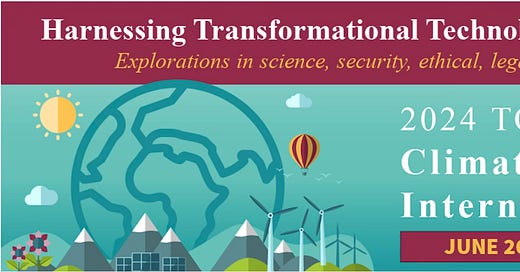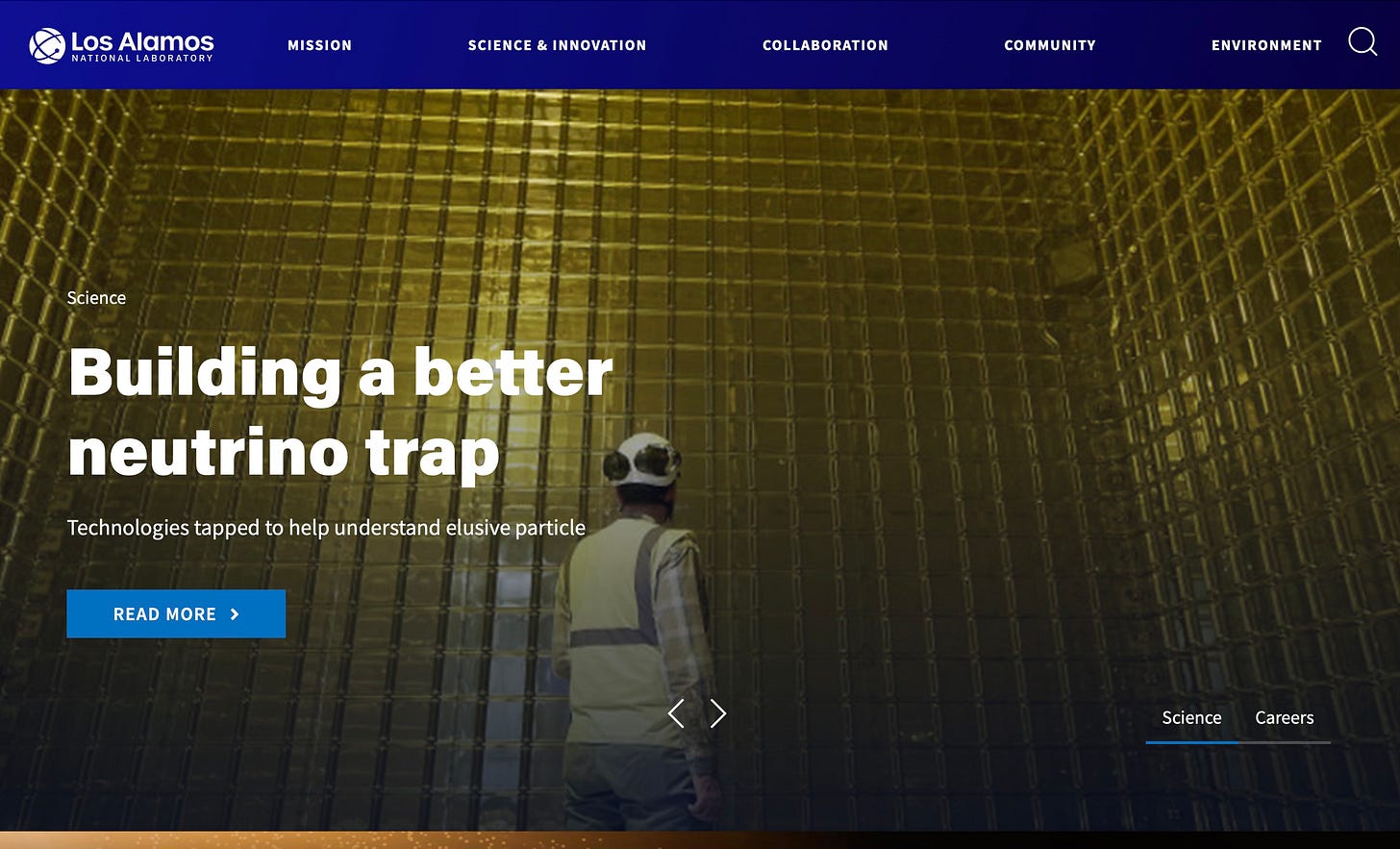Speaking next week at Los Alamos National Laboratory's annual Harnessing Transformational Technologies (HTT) symposium
Subject of climate change & migration
If interested in attending in person or online: Register Here
I am speaking as part of a panel discussion (individual presentations & discussion) on the first day after lunch:
1:30 - 3:00pm Panel 2: Global consequences of migration, human health, and disease vectors
Purpose: Discuss the global consequences of migration, human health, and disease vectors under various degrees of climate action.
Discussion questions:
• What are the most significant challenges and opportunities that might arise due to climate impacts on migration, human health, and disease vectors?
• Will there be a point where we have to prioritize certain impacts over others, and what approach should be considered to prioritize those?
• What policy and partnership mechanisms are needed to develop and harness transformative technologies to advance awareness of changing dynamics and adaptation at various scales?
Moderator: Pat Fitch, Los Alamos National Laboratory
Panelists:
• Thomas Barnett, Author America’s New Map
• Jay Lennon, Indiana University
• Valerie Mueller, Arizona State University
It’s been a while since I visited LANL. The day before the events, our hosts are giving us a tour, which I am looking forward to.
I was a Visiting Strategist for three years (20005-08) at Oak Ridge National Laboratory, so I am reasonably familiar with that world.
I will endeavor not to press any buttons and end the world during the tour.
The more general description of the event:
Confronting the Threats of Climate Change to Global Stability
June 26-27, 2024, Sant Fe Convention Center, Santa Fe, New Mexico
Fueled by a growing population, challenged global resource supply, entrenched economic and energy systems and a general lack of urgency – among other contributors – the documented effects of climate change are known to pose existential threat to humans and other organisms. Its ability to multiply threats across sectors, in addition to the risk of its known and unknown consequences, justify its emergence as a priority in the national and global security communities.
Once isolated areas of study are now fusing into an inter- and trans-disciplinary knowledge domain, referred to as climate security, which integrates a wider range of thinkers and subject matter experts to ask appropriate questions and provide sound solutions. As this intersection grows in priority, questions such as, “What security dimensions are involved in climate change?” and, “What global security risks does a 2℃-temperature increase pose?” require our attention to tactically progress policy and strategy. We consider it important to cultivate these emerging collaborations and make connections between various areas of study not yet considered that have the capacity for unprecedented innovation and excellence.
Summary
Los Alamos National Laboratory has teamed up with the Committee on Science and, Technology and Law (CSTL) and the Board on Science, Technology and Economic Policy (STEP) of the National Academies of Sciences, Engineering and Medicine to host the fourth Harnessing Transformational Technologies Symposium (HTT) on “Confronting the Threats of Climate Change to Global Security” at the Santa Fe Convention Center in New Mexico from June 26-27, 2024.
The HTT Symposium will examine anthropogenic factors underlying climate change and the corresponding threats to global security, with discussions covering various intersecting topics in climate and energy. Intended to explore the intersection of climate change and national and global security from a multidisciplinary perspective, we strive to thereafter encourage discourse in this field of study for its application in policy and strategy development and implementation.
Format
The HTT Symposium will comprise panel discussions over a two-day period to examine four topic areas: 1) framing the problem; 2) global consequences (climate change unchecked); 3) global consequences (climate change checked); and 4) governance. This forum will provide comparative assessment of existing climate and energy challenges in respective sectors.
These factors will also be discussed in the context of national and global security. The two-day symposium will provide a forum for comparative assessment of strategies concerning water, food, and agriculture; migration and human health; political stability; and military and disaster relief operations. Panels of distinguished experts will weigh in on the above four topic areas with the intent to inform and provoke the audience (members of the United State government, National Laboratories, academia, private industry, think tanks and non-government organizations) to address the topics.
Objectives
The near-term objective of this gathering is to examine this multi-dimensional problem with a pragmatic eye and distill the scientific, economic, political, and social factors to a palatable form that helps to build global consensus, cooperation, and long overdue action. This symposium, through presentations by experts, panel discussions and the incorporation of youth and historically underrepresented voices, intends to provide a scientific and balanced view of the challenge, to explore opportunities for research and to reimagine solutions within the scope of national and global security.
Besides examination of these interconnected issues, a concrete goal is to synthesize the talks and discussions into a white paper, “Santa Fe Consensus Action Items,” to precipitate further research and action. The long-term intent is to help create a body of research that allows the nation to address the following questions:
In a post-fossil fuel world, what global engagement can help create a stable world order?
How should the world prepare economically, politically, and socially to mitigate the disruptions caused by rapid transition away from the current fossil fuel-based economy?
What will be the economic and security costs of surpassing the global 2oC-temperature increase threshold?
What are the security implications for countries and democratic institutions if the world does not make the transition to net zero emissions?








